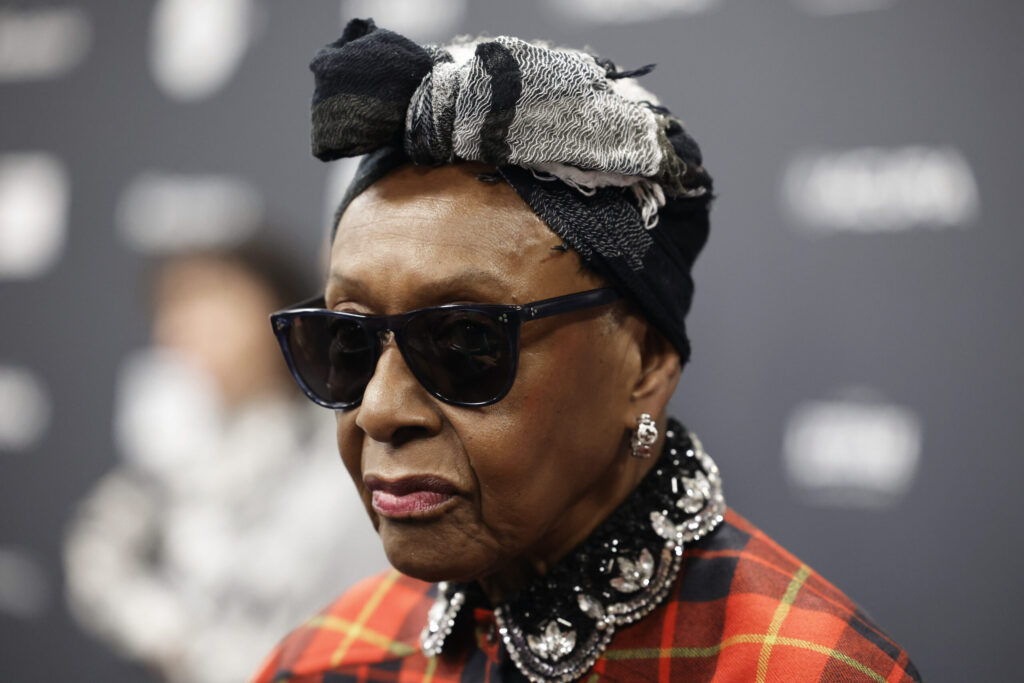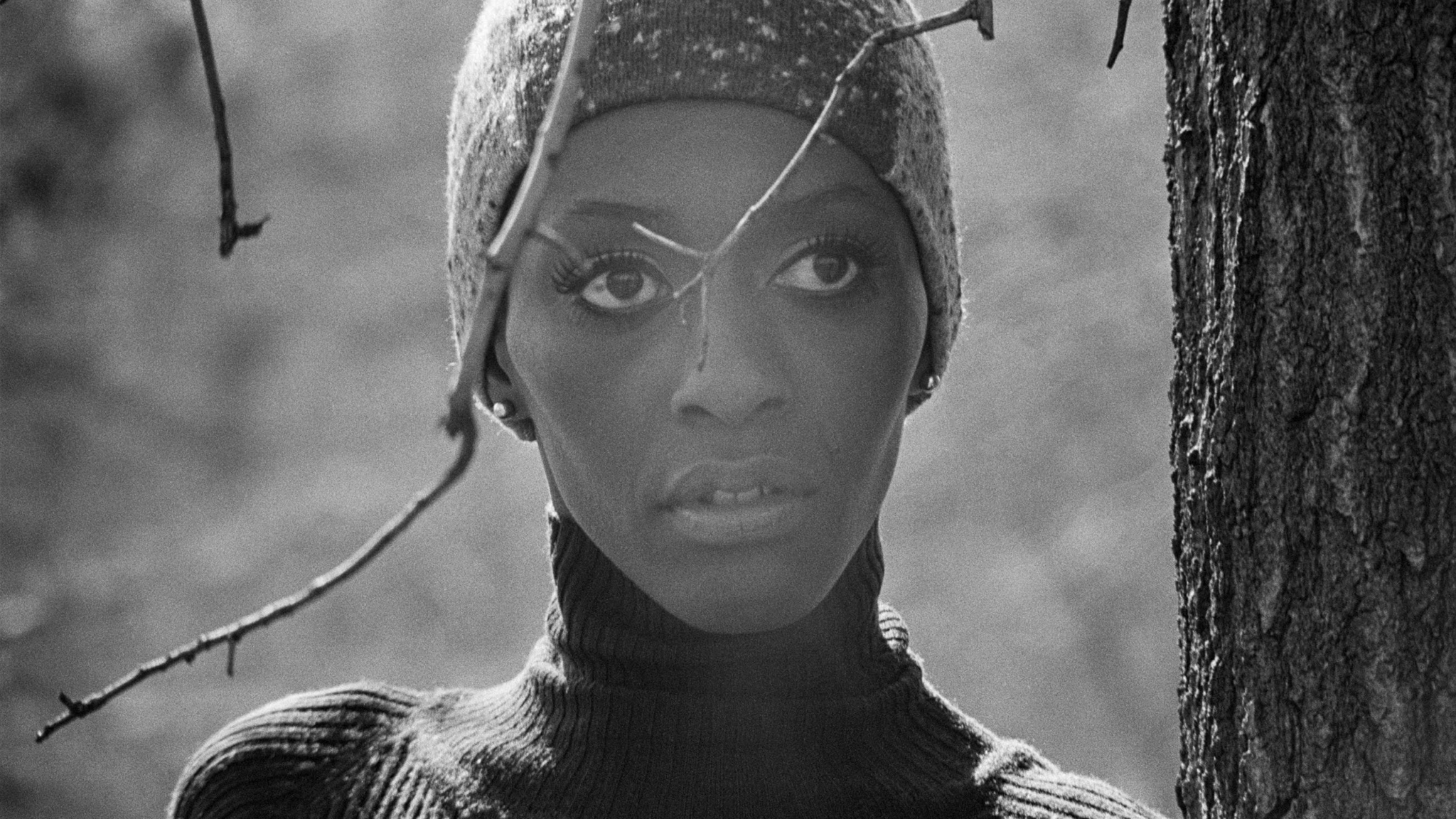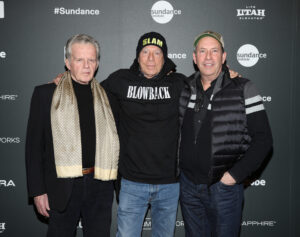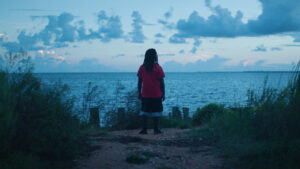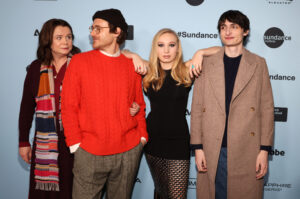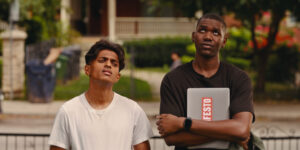[Above: A still from Invisible Beauty]
By Stephanie Ornelas
“Just get to know someone that doesn’t look like you.”
This was the response Invisible Beauty co-director Bethann Hardison gave to a teenage audience member who asked, “What could you leave with us that you want us to hold on to?”
The audience member was one of several young viewers who had burning questions for Hardison — the first Black high-profile fashion model and a trailblazing human rights advocate — at a special screening during the 2023 Sundance Film Festival.
The zealous young audience made Hardison proud, she says in a Zoom interview. As someone who has worked for decades advocating for models of color — and championing diversity both on and off the runway — seeing the next generation so captivated by her film meant everything to her.
“It told us everything. It was true to this moment. No matter how many festivals [we] go to and how many audiences, that was our favorite,” says Hardison.
The 2023 Festival experience seems to have been a full-circle moment for Hardison, who’s been a strong advocate for Black representation and who grew up in the rural South where segregation was the norm. When Sundance Institute organized a special screening in Salt Lake City for Utah high school students as part of its Utah Community Program just days after Invisible Beauty’s world premiere, Hardison recalls stepping into the theater, fearing that an audience of teens wouldn’t engage with a documentary about her life and career as a fashion industry pioneer and mentor to young people of color. She was afraid that they would find themselves wondering why they were even there in the first place.

“But it was just the opposite,” she explains. “We went into the theater about 10 minutes before [the film] ended, and as soon as it was over, they started cheering. And then they all gasped when they heard the filmmakers were present in the theater for a Q&A.”
“It was such a sound,” marvels Hardison. “It was the most amazing sound. And when we got up there, they gave the longest standing ovation. I had to tell them, ‘Okay, sit down now,’” she laughs.
Audience members immediately lined up to have the chance to ask Hardison questions.
“It just meant a great deal for us to know that there’s an audience out there like that. We already had four or five screenings, and we had great responses. It was a very mixed audience,” she says of the Festgoers who attended her premiere at the 2023 Sundance Film Festival. “That was very interesting to us. But I think the teenage [audience] was the one that made us feel like we really had something.”
If there’s one thing Hardison wants viewers of her film to understand, it’s that Invisible Beauty is not a fashion film.
“There’s no doubt about that. It’s fashion-related, but many people have told me that it’s also a civil rights movie, it’s a women’s movie, it’s a parenting movie. It speaks to something in everyone.”
The film features intimate interviews with Hardison and other well-known figures like Naomi Campbell, Zendaya, and Whoopi Goldberg, who talk about Hardison’s cultural impact beyond the fashion industry. Using powerful archival footage, the film addresses racism not just on the runway, but across all industries throughout the U.S.
In the Zoom interview, Hardison explains how important it is to have diversity at the center of movements like Black Lives Matter. She notes that she was proud of the Black Lives Matter movement because “it wasn’t just Black lives walking that march. It was so integrated, that’s the reason why it was successful. When people can see their kids all over the world marching for something that pertains to people of color, it’s very powerful.”
Invisible Beauty’s young viewers in Utah had questions about how they could uphold real change when it comes to championing diversity and authentic representation for people of color — and not just in the fashion industry.
“Everyone’s not meant to be an activist,” Hardison explains. “You might have a call-to-action feeling, but that’s when you need to join and support those who are capable. We need a lot of followers, we need supporters. We need people who get it. And they need to have someone who can do what they can’t do. That’s why I’m very clear about being an activist and an advocate.”
Hardison says people often go up to her and tell her that she’s an activist, but she stresses that she’s more of an advocate, and there’s a big difference between the two.
“That’s why you hear a quote in the film where I say, ‘Activism has to remain active.’ Because there was a moment I stopped. I still had my foot on the clutch, but everything we had worked for started going slowly backwards. That was back like in 2010–2012. So you start to see that, and you start realizing that in order to be an activist, you have to remain active.”
Hardison acknowledges that viewers may feel an immediate obligation to act after seeing her film, as cinema has the power to ignite serious change. But there’s also a lot of power in simply listening and absorbing information. And then, Hardison instructs, take it to the polls.
“Most people don’t even want to vote anymore, and that’s bad. Because that’s all we got. That’s the only way we could change the tide. When I hear people say things like, ‘It doesn’t matter what I do, I’m not gonna vote,’ I don’t care what color you are, I don’t care how young you are, it’s very upsetting because then we can’t change anything. And that’s exactly what’s going to happen.”
She continues, “Those who really have something to lose will do anything they can — they’re the ones with money — to make sure they don’t lose their position.” And when they go up against those who have less to lose — the “nice people who basically want to just do the right thing,” says Hardison — they won’t try to do the right thing. “He’s going to do whatever he can to suppress you. And these are things that we have to recognize.”
But power exists beyond having money.
“The only other thing we have in our country, still, is the democratic movement of voting. So, be an activist at that. If you can do that, then that’s activism.”
As we commemorate Juneteenth, a day that marks the abolition of slavery in Texas at the end of the Civil War, Hardison remarks that there’s still work to be done. And while it’s a day to be celebrated and honored, we should still be charging ahead in the fight for diversity across all industries.
“There’s a lot more to be doing. Just don’t lay back on your laurels. Because shit’s getting ready to get really hectic.”
Hardison wants audiences to keep an open mind as they discover Invisible Beauty, to take the time to feel what they need to feel, and then act accordingly.
“Just go sit down and enjoy the ride. But when you walk away, it’s going to inspire you to want to feel a certain way. Allow that to happen, but don’t feel obligated and don’t criticize yourself,” advises Hardison. “Many people feel, ‘I should be doing something.’ Well, if that inspires you and you feel you can, do. Even if it’s just a thought, have it. I always say, ‘Run your own race.’ Go in and learn something about someone and walk away inspired by it. But don’t put it upon yourself to feel like you’re less because you didn’t do that.”
More importantly, she encourages viewers to pay attention to the political landscape. Read, visit libraries, talk to educators — and again, vote.
“Some people don’t know what’s going on, but the world is changing underneath their feet. And if we don’t pay attention, we’re going to be sitting there wondering why a child can’t get health care, why a child can’t read about other people’s cultures and struggles of a country. People need to be self-aware and motivate themselves to get to the polls.”
